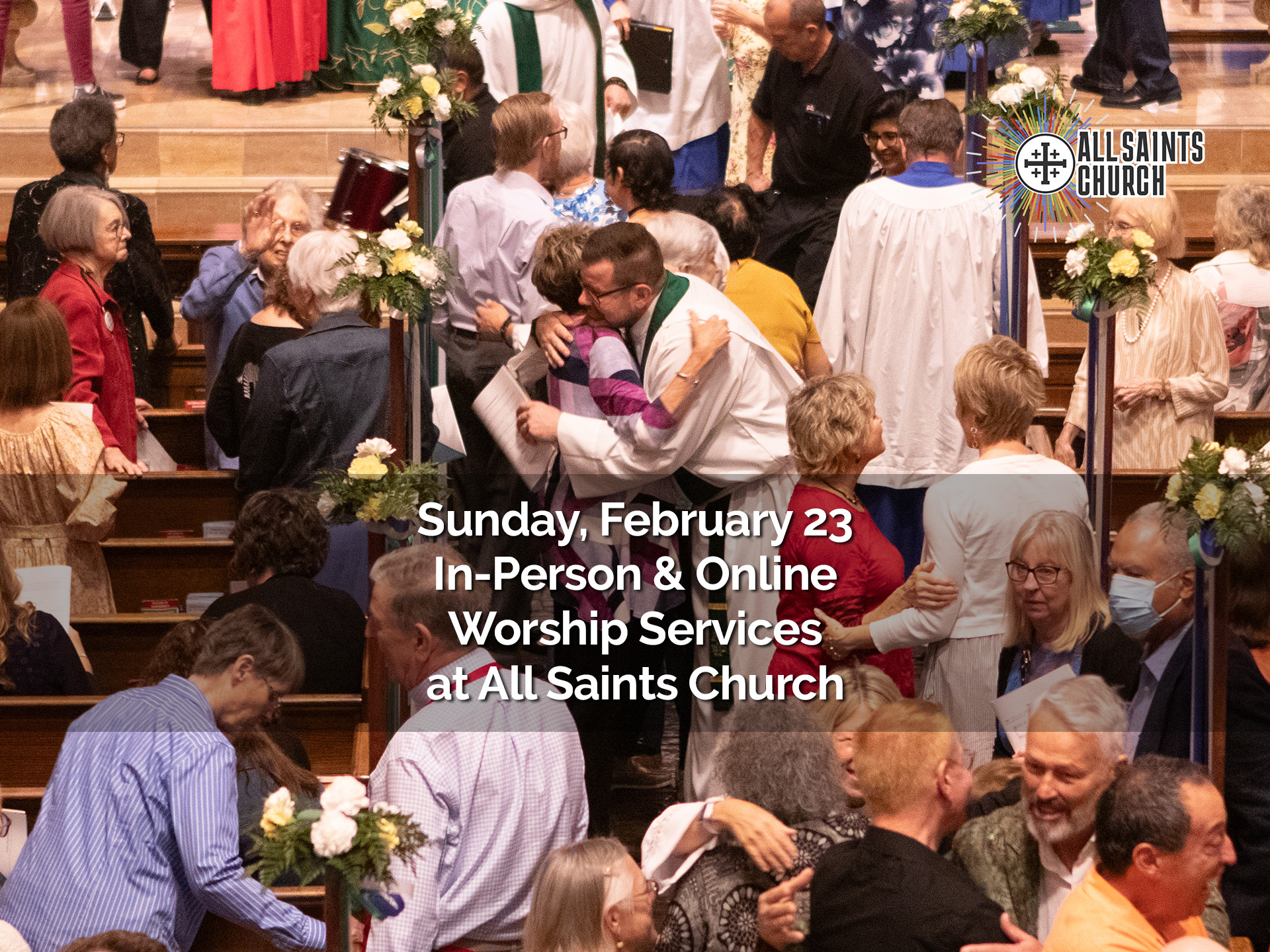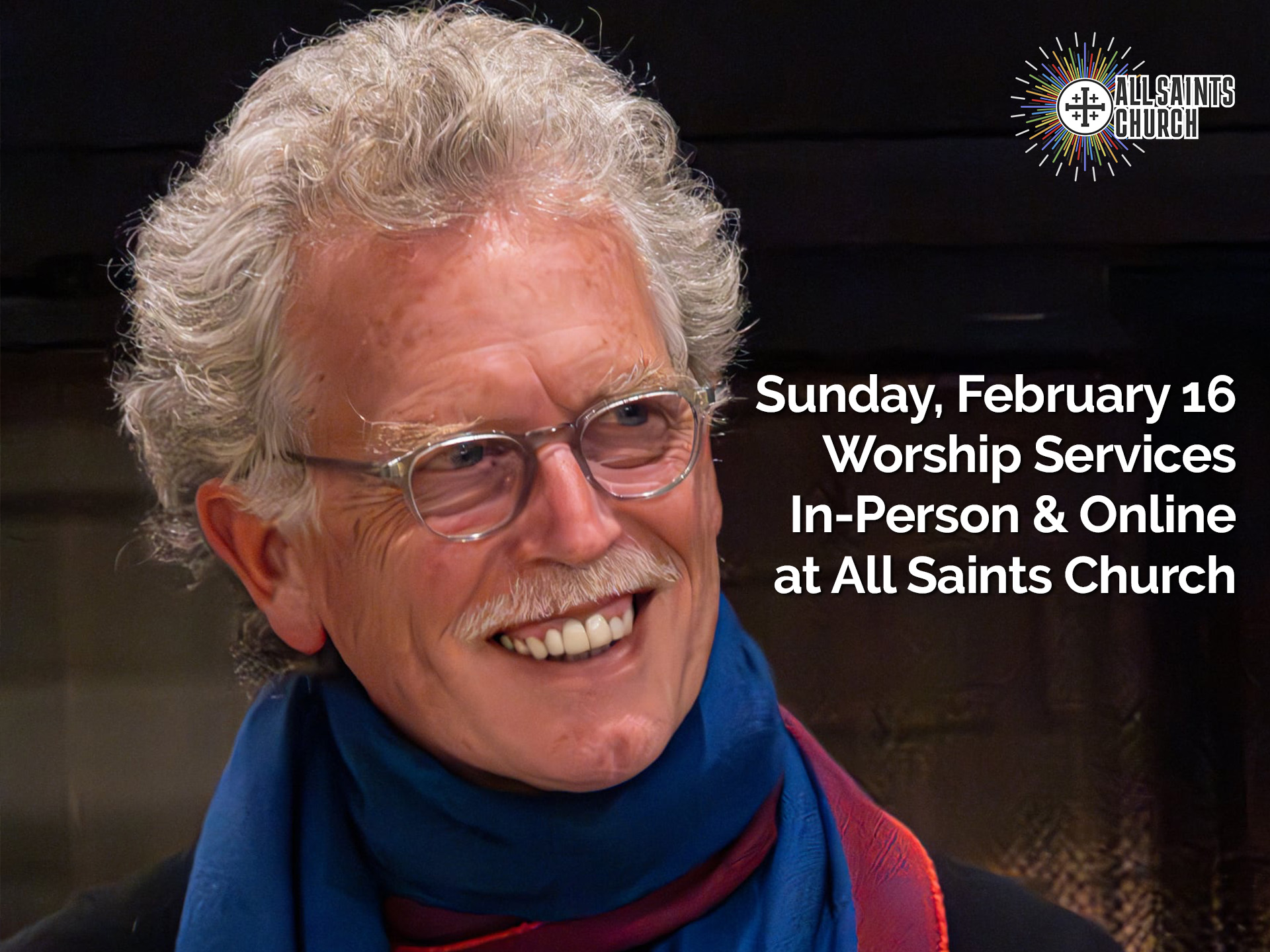It was our delight to welcome back Gary Hall — former All Saints staffer, erstwhile Dean of the National Cathedral and Interim Dean of our diocesan seminary Bloy House — to our virtual pulpit on Sunday, July 5 for our 2020 celebration of the Feast of Independence Day. Thank you, Gary, for the gift of your words and for the text of your sermon, shared below.
===============
One summer when I was home from college—I think it was 1970—the city of Burbank organized an event they hoped would bring the community together in a time of national division. It was a football game not so felicitously entitled “The Freaks versus the Pigs”. One side would be made up long haired hippies like me. The other team would be all Burbank policemen.
Not being in those days much of an athlete but still wishing to do something civic minded beyond the anti-war protest going on up in Berkeley, I agreed to participate. Unfortunately for my side, the freaks and the pigs seem to have been given different memos about the game’s ground rules. We freaks played as if it really was a touch football game. The other side rolled over us like it was Super Bowl Sunday. I spent most of that game getting myself up off of the ground after I had been unceremoniously tackled.
I begin with this story as a caution to those who think we are in a uniquely polarized American moment. To be sure, our current divisions are real, but to someone with a long memory they are not new. Mask wearers versus anti-maskers, environmentalists versus climate change deniers, immigration advocates versus fans of the border wall—these oppositions may seem new to some, but they feel to me very much like the divisions I remember from my youth over Civil Rights, the Vietnam War, women’s and LGBTQ rights. The issues and the passions, then as now, are pretty much the same.
If you watch as much cable news as I do, you are familiar with commentators who decry the current state of polarization in our nation. Many of them speak nostalgically of a time of comity and bipartisanship that lasted, say, from the Revolution of 1776 to last Tuesday. But if you read even a little bit of American history you realize how false these rosy notions of American unity are.
In the years before I came to All Saints in 1990 I studied and taught American literature. What I am going to say now is grossly oversimplifying, but to my way of thinking, two quite different visions of America have always had to contend with each other. The first might be called the individualistic vision, typified by Benjamin Franklin in his Autobiography and the nineteenth century robber barons: America is the place of opportunity to make it big, and the Constitution gives me rights to do whatever I please. This is the America of Social Darwinism, laissez-faire Capitalism, the survival of the fittest. “Get out of my way, world, I’m coming through.”
We might call the second, competing idea of America the communitarian vision. It’s the America of Thomas Jefferson’s Declaration of Independence and Abraham Lincoln’s Gettysburg Address. This is the America not of unlimited personal opportunity but of shared, collective solidarity—the America of labor unions, the New Deal, Civil Rights, and the Great Society. The slogan of this America might be, “We’re all in this together.”
Proponents of the first, individualistic, vision of America like to claim that we were founded by a bunch of rugged individualists who escaped English tyranny by coming to a New World they could exploit to their hearts’ content. But, in fact, the Massachusetts Bay Colony was established by Puritans who came here for a collective social experiment. They wanted to found a model society built on reformed Christian principles, a new Geneva in the new world. Certainly there were a few entrepreneurial souls who made their way to early New England, but for the most part the first white Americans practiced a collaborative, not a competitive, enterprise.
Now the point of this little digression is to suggest that the conflicts we experience today have a long prehistory in our culture. Take, for example, the current debate on wearing masks in a pandemic. If you watch the video clips of anti-maskers addressing their city councils, you’ll hear the same litany many times over: America is a free country. It is my right to go around without a mask. Nobody can make me wear one if I don’t want to. Their argument centers entirely on individual rights.
The pro-maskers make a different claim: we need to wear masks out of a sense of shared responsibility to each other. I wear a mask not only to protect myself but to protect you and so keep the whole community safe. My individual health depends on the community’s health. I cannot be healthy if you are not healthy. We could switch out the subject from masks to seat belts, motorcycle helmets, or gun control and have the same exact argument. One side claims rights given to the individual. The other claims responsibilities shared for the common good. This argument is as old as America itself, and not something cooked up by Fox News and MSNBC.
So what does the history of this conflict mean for you and me in the current moment, on Independence Day, 2020?
Our first Bible reading today gives us some guidance. It comes from the eleventh chapter of the Letter to the Hebrews, and it is one of my two or three favorite passages in all of scripture. It recounts the story of all the biblical figures who lived faithfully yet who died before seeing the fulfillment of their hopes, what the writer calls “the promise”. This promise, in the Hebrew Bible, begins with the call of Abraham and Sarah, and it was not a hope of personal, individual salvation but one of social fulfillment in a land, a home, a society of justice and peace. Those pioneers of faith were exiled pilgrims on a journey toward their true homeland, and they kept going because they were drawn by a vision of the world that might be. The argument of Hebrews builds toward this majestic conclusion:
All of these died in faith without having received the promises, but from a distance they saw and greeted them. They confessed that they were strangers and foreigners on the earth, for people who speak in this way make it clear that they are seeking a homeland. If they had been thinking of the land that they had left behind, they would have had opportunity to return. But as it is, they desire a better country, that is, a heavenly one. Therefore God is not ashamed to be called their God; indeed, God has prepared a city for them. [Hebrews 11:8-16]
“They confessed that they were strangers and foreigners on the earth.” You and I know something about that. People of faith, and Christians especially, have always been uneasy in any society. To be sure, there have been churches that bless the status quo, but we who follow Jesus remember that his central message was a critique of a political and religious establishment that often confused power with holiness. No human society yet devised, America included, has ever lived up to the renewed world envisioned in the Old and New Testaments. We walk, as our Puritan forbears did, toward the heavenly city, the New Jerusalem, the “city on a hill”, but we recognize that no society, not even ours, can ever quite live up to realizing this hope.
To be a Christian and an American means that we will always stand in this peculiar tension between the already and the not yet. The lofty ideals we proclaim—all created equal and endowed with the inalienable rights to life, liberty, and the pursuit of happiness; a government of the people, by the people, and for the people; and what the Constitution calls “a more perfect union”; none of these have yet come to pass. Nevertheless, as Hebrews says, “we see and greet” these promises, and we persevere in working to make them real. We desire what the writer of this letter calls “a better country, that is, a heavenly one”, the city God has prepared for us and for all who suffer, struggle, and resist oppression in service of the common good.
The two competing visions of America did not begin in 2016 and they will not end in 2020. Alas, they will always be with us. But here, for us Christians, is the uncomfortable but liberating truth: those of us who follow Jesus are necessarily committed to one side of this argument. There are not, for us, two sides to this issue. The communitarian vision of America is our vision.
No matter how some may misuse the words of scripture to promote selfishness, aggression, and cruelty, you and I know that the Jesus we love and follow opposed those values and lived with and served those who were the victims of human injustice and oppression.
There may be two parties to this civic argument, but there is only one place for a follower of Jesus to stand: committed ever and again to an expansive, inclusive, and empathic vision of America. We are on the side of the maskers, the environmentalists, the labor unions, the economic reformers, the immigrants, the #MeToo women, those who proclaim “Black Lives Matter”.
The institutional church has often made the mistake of thinking it exists to serve the powers that be. But followers of Jesus—both within and outside the church—know whom Jesus would be walking with and standing for in the current moment.
No national polity will ever completely realize the ideal we project onto it, not even the United States of America. Because it can only approximate our vision of the common good, no nation state will ever be worthy of our absolute, final allegiance.
But we can work to build something approaching the ideal we seek by standing and working for love, justice, compassion, and peace. Our nation can and will approach the vision we pursue only when we, its citizens, personally and collectively commit ourselves to realizing Jesus’s values in the lives of actual human beings.
The United States of America, great and flawed as it is, will never quite become the heavenly city of biblical faith, but if you and I strive to make it the “better country” our scripture describes we can come pretty close.
We followers of Jesus will always be restless and dissatisfied in any society, even the United States of America. We know that no earthly system–however well-intentioned—can finally realize its highest aspirations. You and I and all people of faith will always be strangers and foreigners in search of a homeland.
Only by our patient faithful striving will we make this nation in the image of that better country, the heavenly one, as we work together to build the city which God is preparing for us all. Amen.



